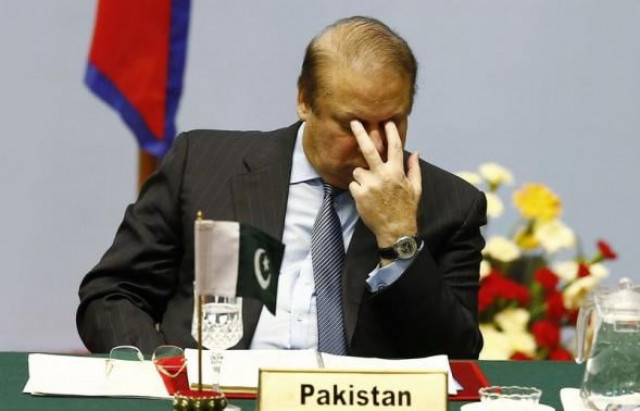A state of evolution
What has emerged is probably a transitional model, a pale khaki government that is beginning to offer some stability

Pakistan needs friends and no inter-state relationship is always either happy or forever. Our foreign relations are currently having their compass reswung. PHOTO: AFP
On the downside there has been minimal improvement in the national statistics for education, and the promise of the PML-N government to increase education spending to four per cent of GDP — roughly double where it stands today — looks increasingly unlikely to be fulfilled. The Millennium Development Goals are all going to be missed. In numerical terms, the negatives outweigh the positives, but there is a sense that Pakistan is no longer ‘bumping along the bottom’ and although it is uneven and patchy, there is an improvement in the general health of the state. It is, in short, evolving.
Several evolutionary threads, the DNAs of change, are currently in play. Pakistan needs friends and no inter-state relationship is always either happy or forever. Our foreign relations are currently having their compass re-swung. The Arab world is still getting to grips with the reality of Pakistan being a parliamentary democracy and with a mind of its own, and there will be further adjustments as our energy needs and solutions are met via a basket of technologies and sources — which in the long term are not going to be Arab.
China is going to be the major investor in our future, but America has begun to reshape its relationship with Pakistan. The Chinese takeover of the port of Gwadar has unsettled the Americans and the Indians and America sees its influence waning, in part because it itself is ‘pivoting towards the Pacific’. Thus the Americans, rather than matching the Chinese dollar for dollar, have decided to invest in infrastructure construction, providing technical expertise and assistance. This will work to Pakistan’s advantage, but only if the capacity can be developed to reap the benefits of the various skeins of development and investment, and looking over a 20-year time frame and the parlous state of the education system, there is much catching-up to do.
In the short term, unemployment and poverty are feeding the dragons of terrorism and militancy as hungry jobless people may be swayed by ideological extremes. Give them jobs and food, say the economists, and they are less likely to tread dark paths. The prevalent extremism in society is the one monster that has the potential of undoing much of the good that has been achieved in recent years. The powers that be need to realise this sooner rather than later and need to work towards dismantling the ideologies and the infrastructure that extremist forces of all hues have developed over the years. This will be a hard task, which will require much political will, but this is one area that needs to be worked upon for the long-term health of the nation.
The nature of governance is also evolving. Although no longer directly involved in the processes associated with running the country, the military is still the lead player across a range of interests. What has emerged is probably a transitional model, a pale khaki government that is beginning to offer some stability. Pakistan is not a failed state, nor in reality is it anywhere near failure. The colour of any future government is going to depend on whether a cohort of mediocre politicians can be prevented from making a bigger mess than that which they have made for all of us.
Published in The Express Tribune, May 17th, 2015.
Like Opinion & Editorial on Facebook, follow @ETOpEd on Twitter to receive all updates on all our daily pieces.















COMMENTS
Comments are moderated and generally will be posted if they are on-topic and not abusive.
For more information, please see our Comments FAQ